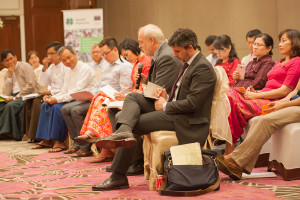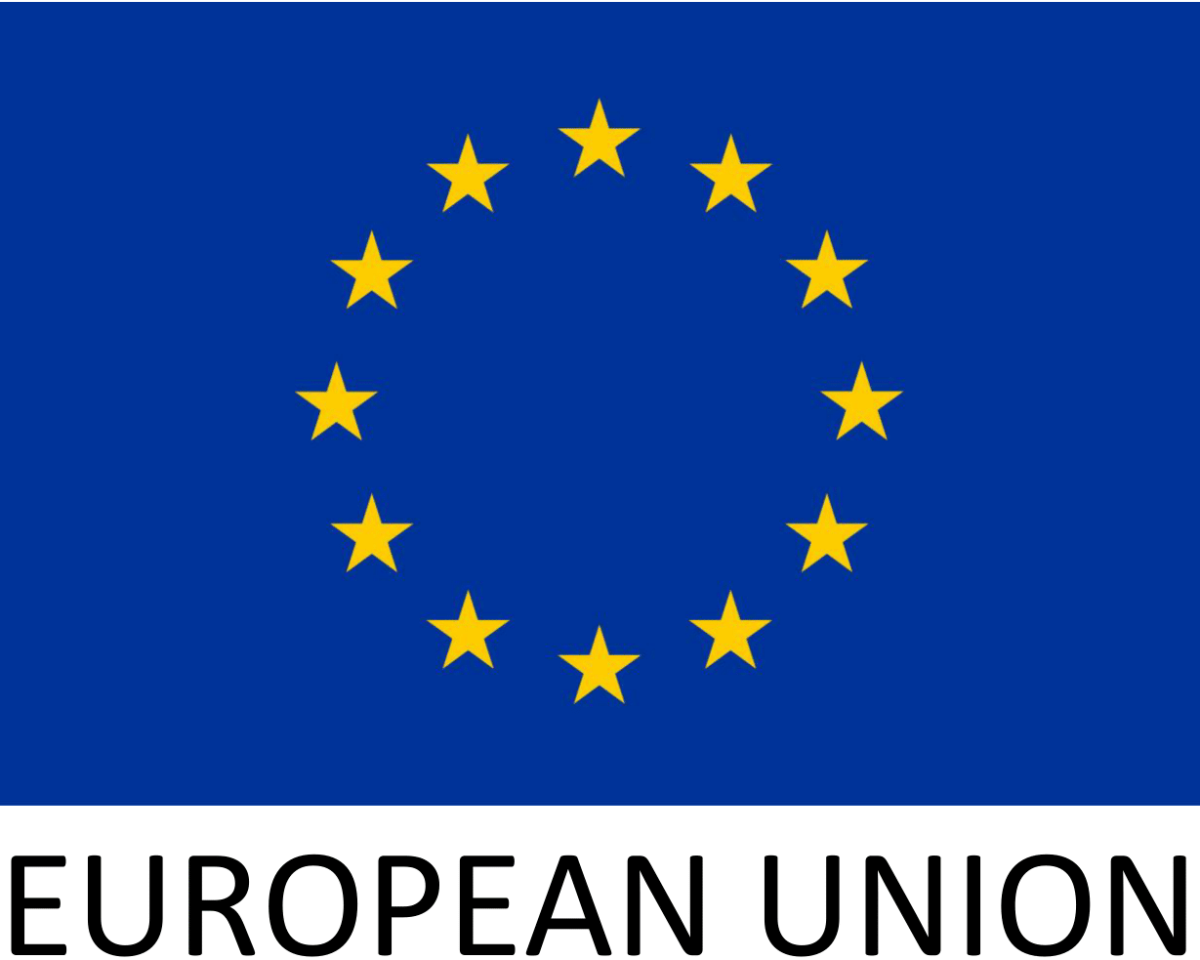 In the framework of the “EU flagship initiative on responsible management of the supply chain in the garment sector”, launched by the European Commission, a round table discussion to foster national dialogue between ILO, Myanmar Ministries, MGMA, local factories and international brands of the Trade Mission to increase compliance with the MGMA Code of Conduct took place on March 25th. The EU roundtable offered a unique platform for more than 50 Myanmar garment producers and international brands to better understand their respective needs, possibilities and requirements according to their respective positions along the garment supply chain, for ensuring responsible production of garments “Made in Myanmar”. Myanmar companies also had the opportunity to state in front of Myanmar Ministries what is needed from their perspective to ensure responsible production, as experiences from other countries have shown that compliance with social and environmental standards can only be reached by joint efforts of all stakeholders involved.
In the framework of the “EU flagship initiative on responsible management of the supply chain in the garment sector”, launched by the European Commission, a round table discussion to foster national dialogue between ILO, Myanmar Ministries, MGMA, local factories and international brands of the Trade Mission to increase compliance with the MGMA Code of Conduct took place on March 25th. The EU roundtable offered a unique platform for more than 50 Myanmar garment producers and international brands to better understand their respective needs, possibilities and requirements according to their respective positions along the garment supply chain, for ensuring responsible production of garments “Made in Myanmar”. Myanmar companies also had the opportunity to state in front of Myanmar Ministries what is needed from their perspective to ensure responsible production, as experiences from other countries have shown that compliance with social and environmental standards can only be reached by joint efforts of all stakeholders involved.
The results of this lively discussion were shared during a press conference directly after the event: MGMA agreed to implement continuous activities aimed at implementation of the garment industry Code of Conduct and to be transparent about the process. It furthermore called on the Government of the Union of Myanmar to establish and enforce a consistent policy framework on labour-related laws.
All participants, both the Myanmar factories as well as the international brands agreed to focus on improving management systems rather than just fixing issues to increase chance for long term improvements for the Myanmar workers in the garment factories. It was jointly elaborated that two kery issues can drive improvements in social compliance practices within Myanmar factories 1) Long-term business relationships and 2) Capacity building activities. The participants agreed to continuously and in dialogue work on these key issues.
“The Code is not for the buyer, it is for our workers and it is for our workplace, the factory,” Khine Khine New of MGMA said. “Eventually, if that is good for the worker and the workplace, the buyer will come … We always said we want to be on a level playing field with the international businesses when the country opened up, and we found out this is one thing we have to do.”
t+m had supported MGMA to develop the Code of Conduct. The Code serves as a voluntary guideline for corporate responsible behaviour and has been publically endorsed by MGMA’s member companies in February 2015. It rests upon the ILO core conventions, the UN Guiding Principles on Business and Human Rights and also contains environmental provisions. The Code contains a strong commitment of MGMA and the industry to work towards the full abolition of child labour, which has been an established practice in the country mostly as a result of limited educational opportunities. Although Myanmar law allows children as of 13 year to carry out some hours of light work per day, the Code fixes a minimum hiring age of 15 years. MGMA strongly supports child labour remediation and will support efforts to improve the availability of free education for children and teenagers in Myanmar. The Code also contains provision on the reduction of overtime and occupational health and safety, two of the predominant issues when it comes to social compliance.
For further information on the Code of Conduct: http://www.smartmyanmar.org/news/smart-myanmar-facilitates-first-ever-co... .
To download the Code of Conduct: http://www.myanmargarments.org/about/mgmas-code-of-conduct/
Overall Evaluation of the Trade Mission and the business opportunities in Myanmar
Despite some remaining obstacles (such as insufficient access to credits, prevalent inability of local garment factories to produce on an FOB basis, high land prices, frequent power shortages, insufficient textile industry presence, partially still underdeveloped infrastructure), Myanmar’s garment industry demonstrates considerable strengths and opportunities. The industry does not only benefit from the GSP + status for imports to the EU and the MFN status for imports to the US. Myanmar garment factories also show long years of experience in manufacturing products for high quality markets, such as Japan and Korea, which lead to a high quality of workmanship and manufacturing of garments. A growing number of industrial zones offer special incentives for foreign ownership and investment. Labour costs are competitive in regional comparison. With rising public attention and a continuously high level of commitment by the international community to provide technical assistance, training and market access support, the garment industry will improve quickly with regard to productivity and social compliance. Furthermore, through the project office of SMART Myanmar in Yangon, interested international buyers can have a direct contact to the dynamic and interested sector association MGMA and its 300 member companies.
Overall, the Trade Mission to Myanmar was very successful and has been evaluated accordingly by the participants. The European companies were able to get a thorough overview about the Myanmar garment sector and made valuable contacts Myanmar factories for future cooperation. There is potential for producing the product range the European companies plan to produce in Myanmar, whereas this potential highly differs in terms of order quantities, lead times, prices etc. according to each company’s specific technical requirements. It became very clear that both, European and Myanmar companies, have a strong interest to shape a responsible Myanmar garment industry by building on long-term business relationships and by accompanying and supporting local factories in their step by step improvement process. Consequently, Myanmar has all chances to becoming the next production hub for garments in South-East Asia while at the same time growing sustainably.
Juliane Schroeder
CSR expert of t+m German Confederation of the German Textile and Fashion Industry










